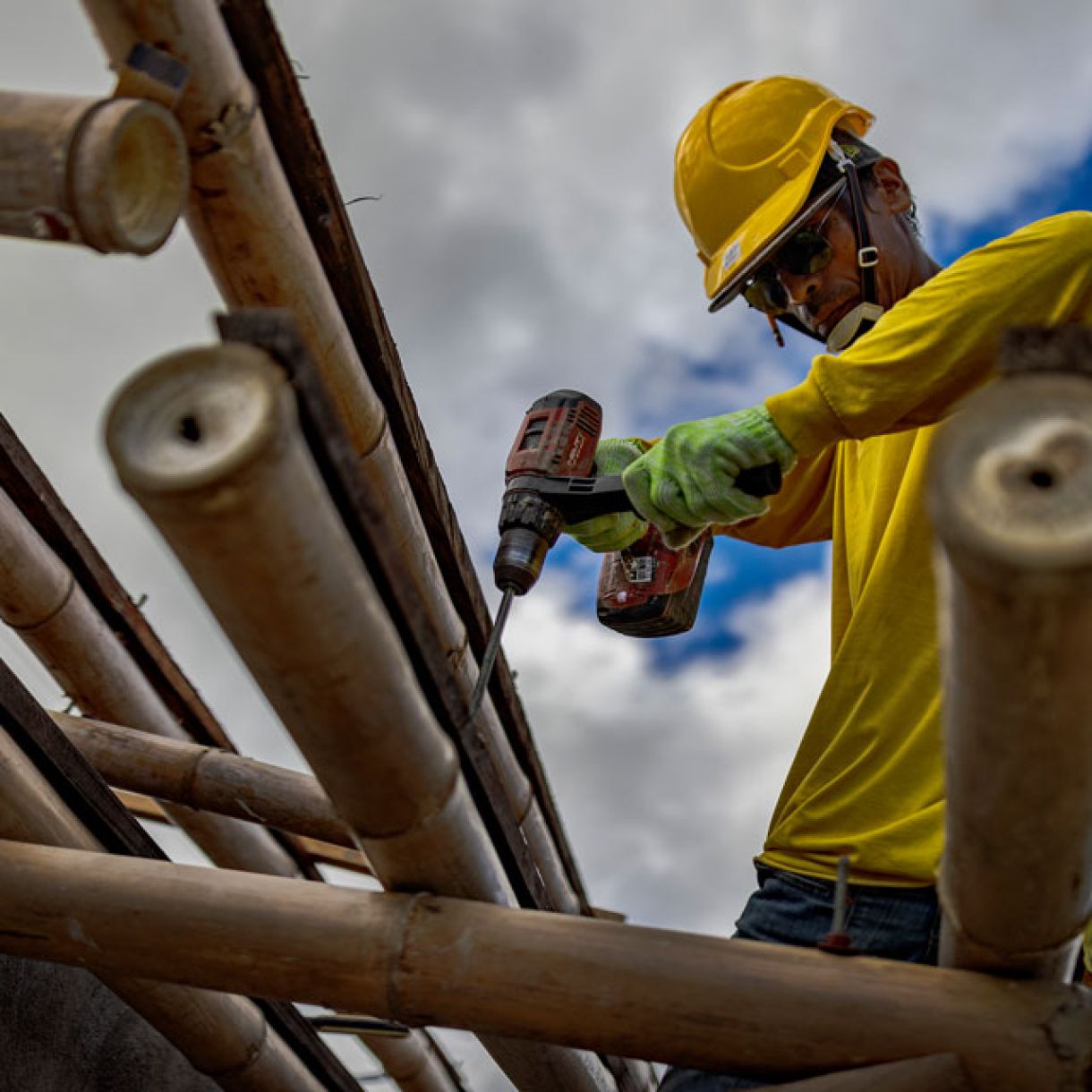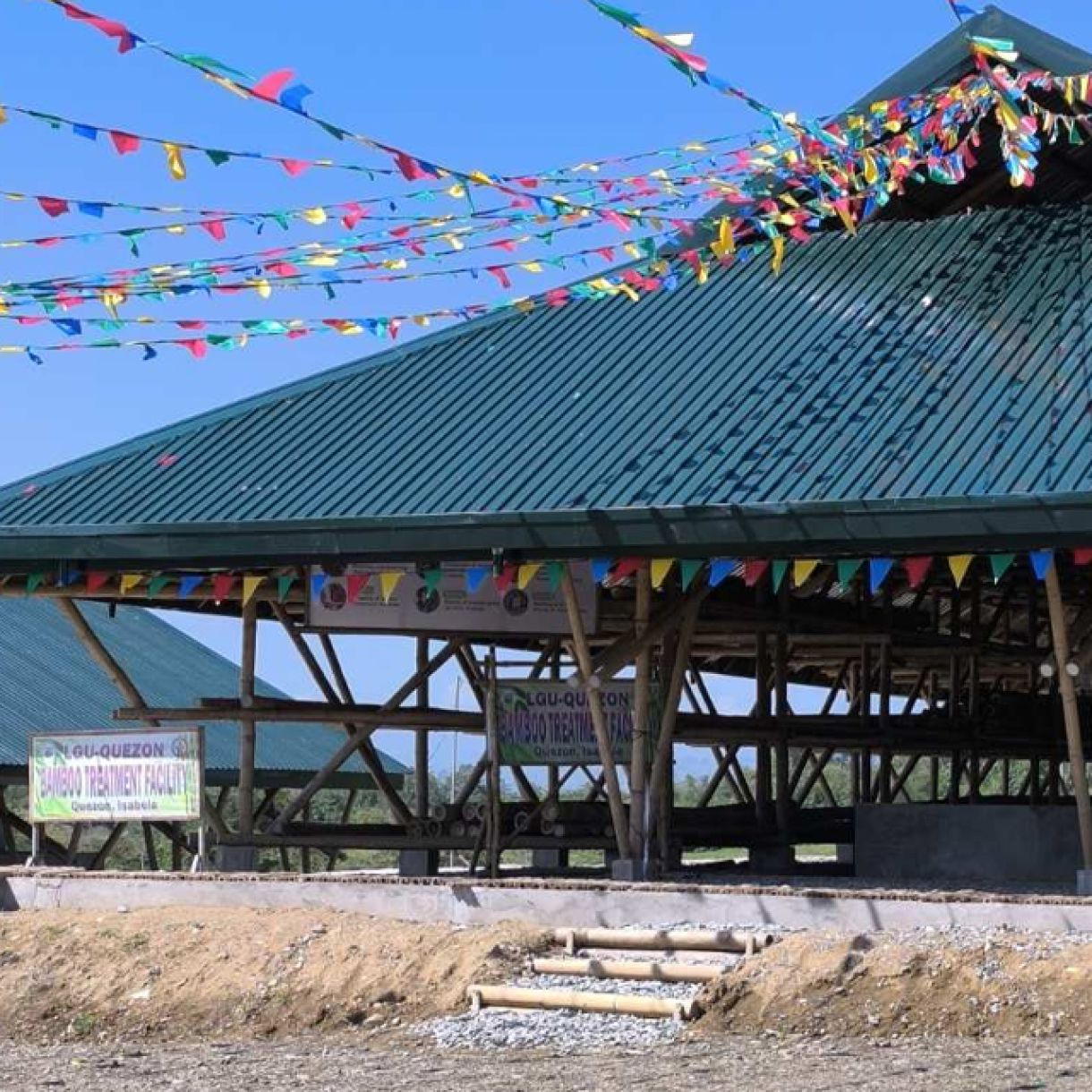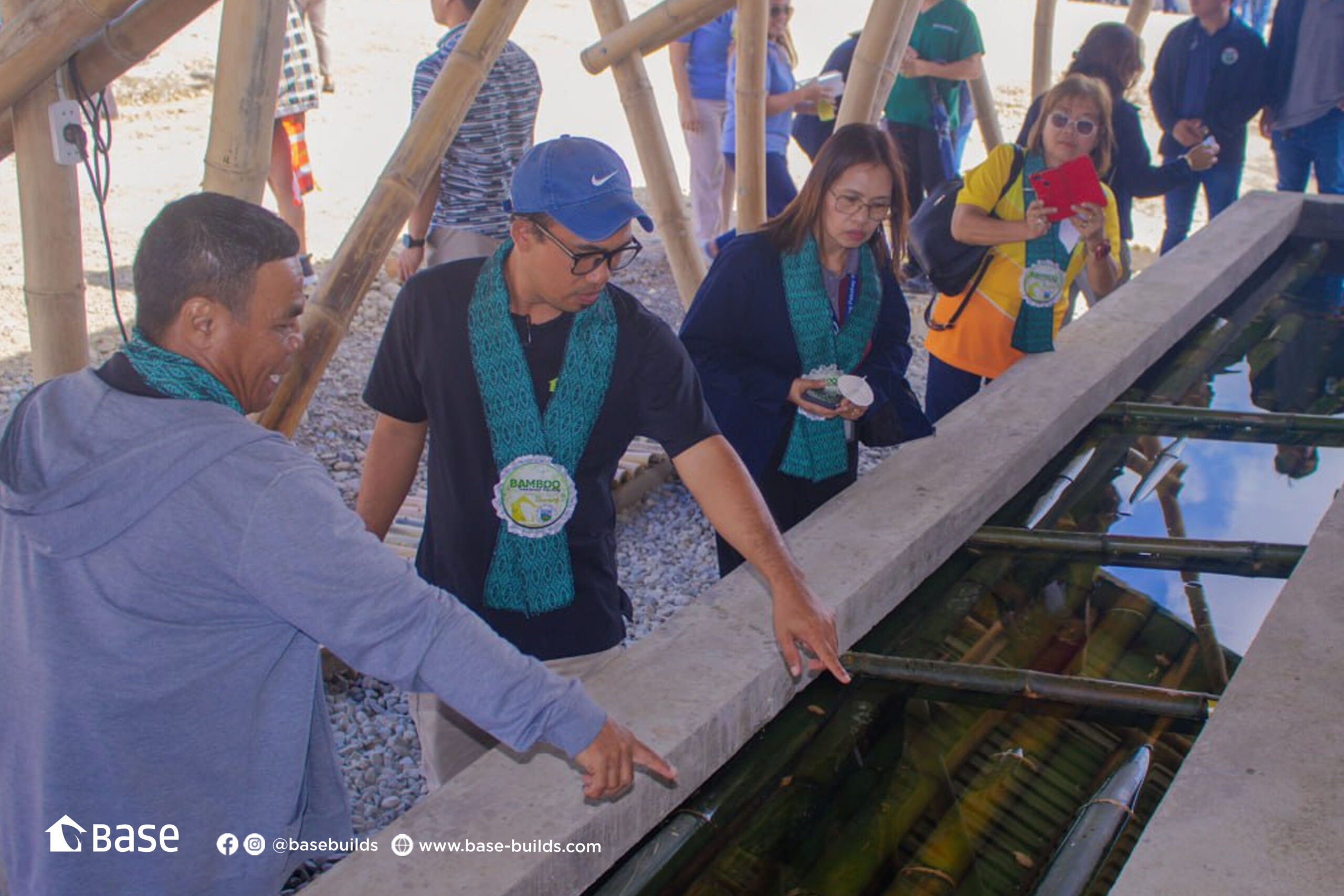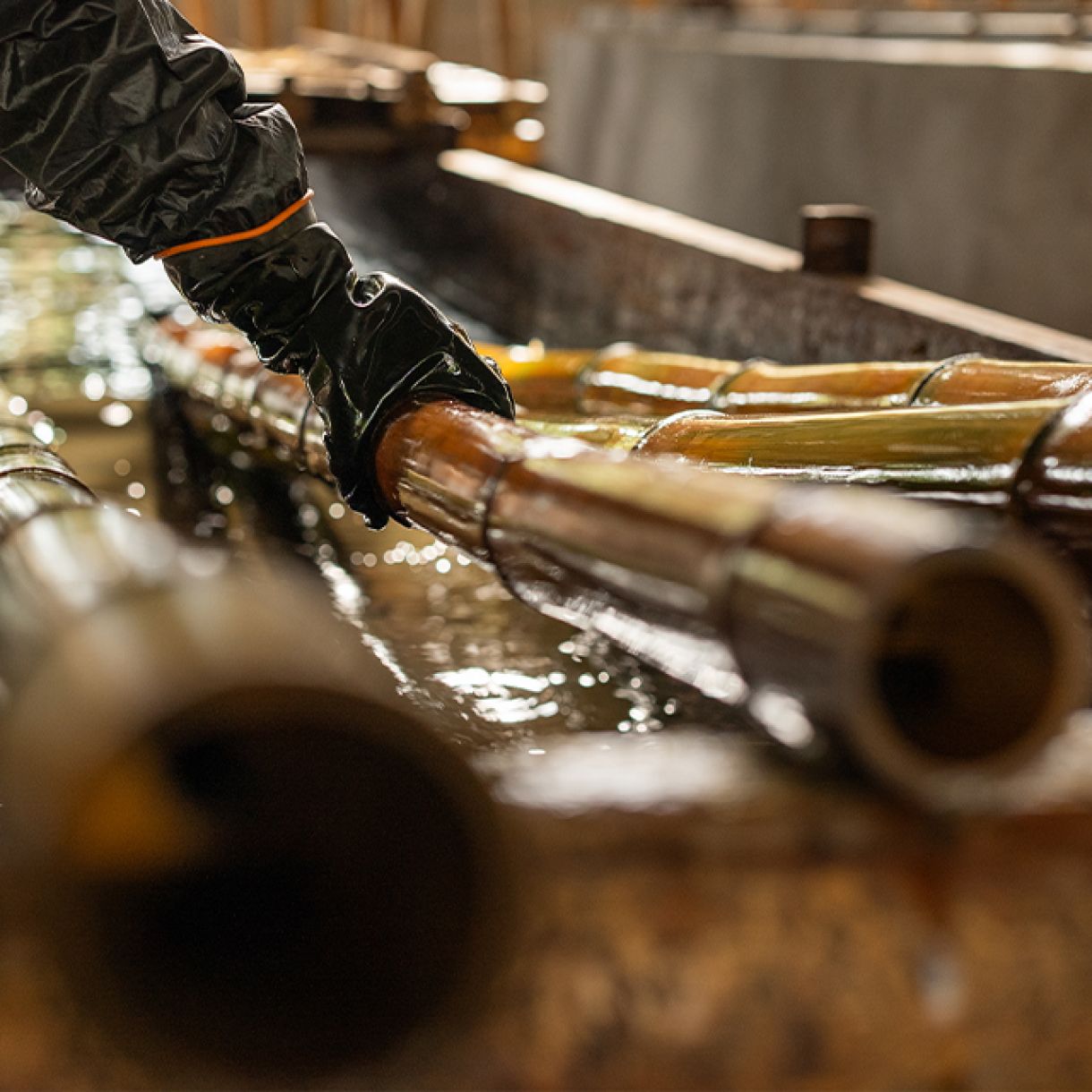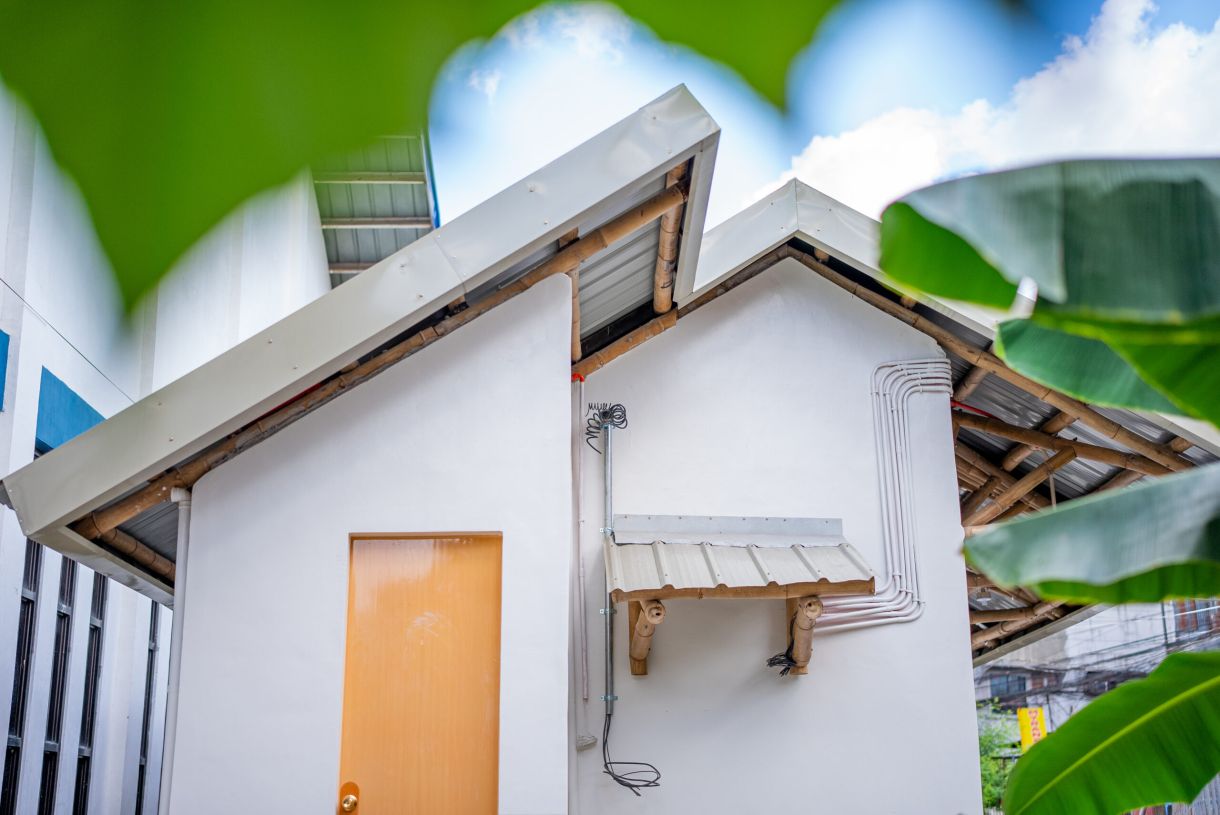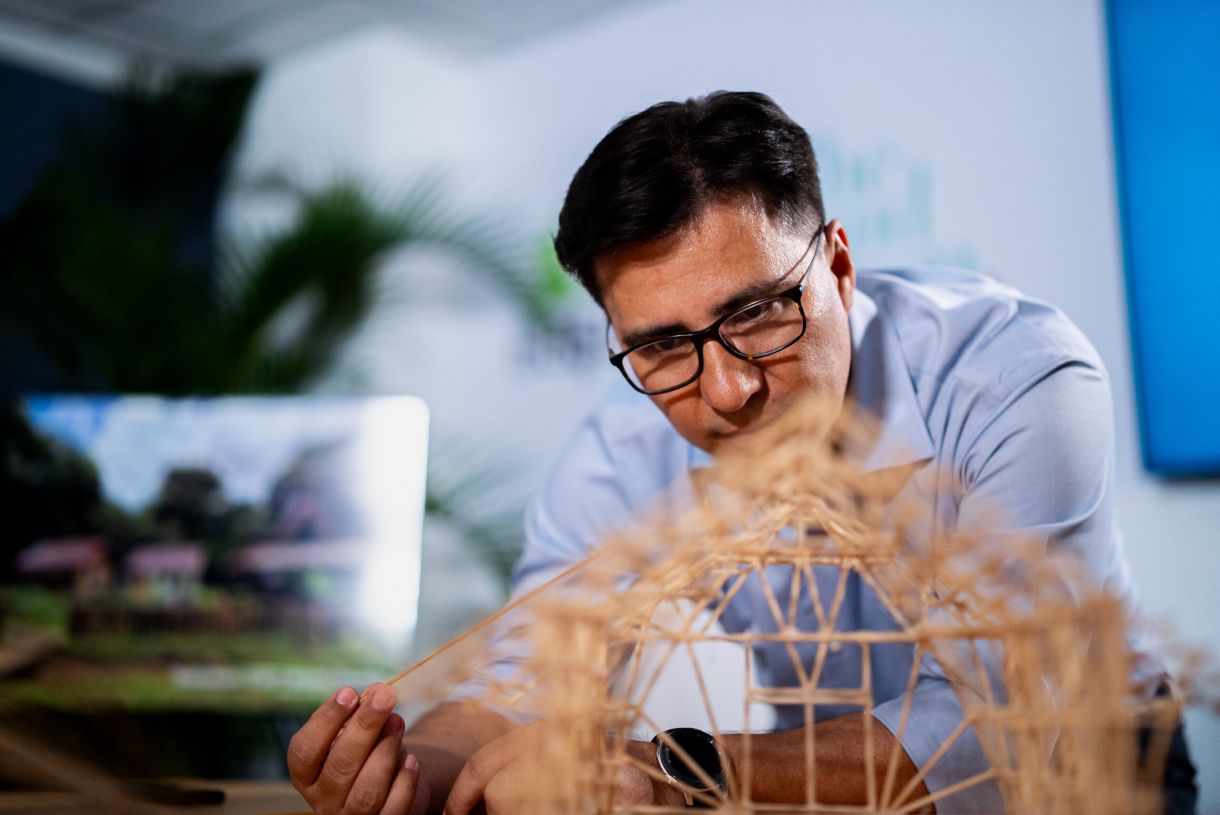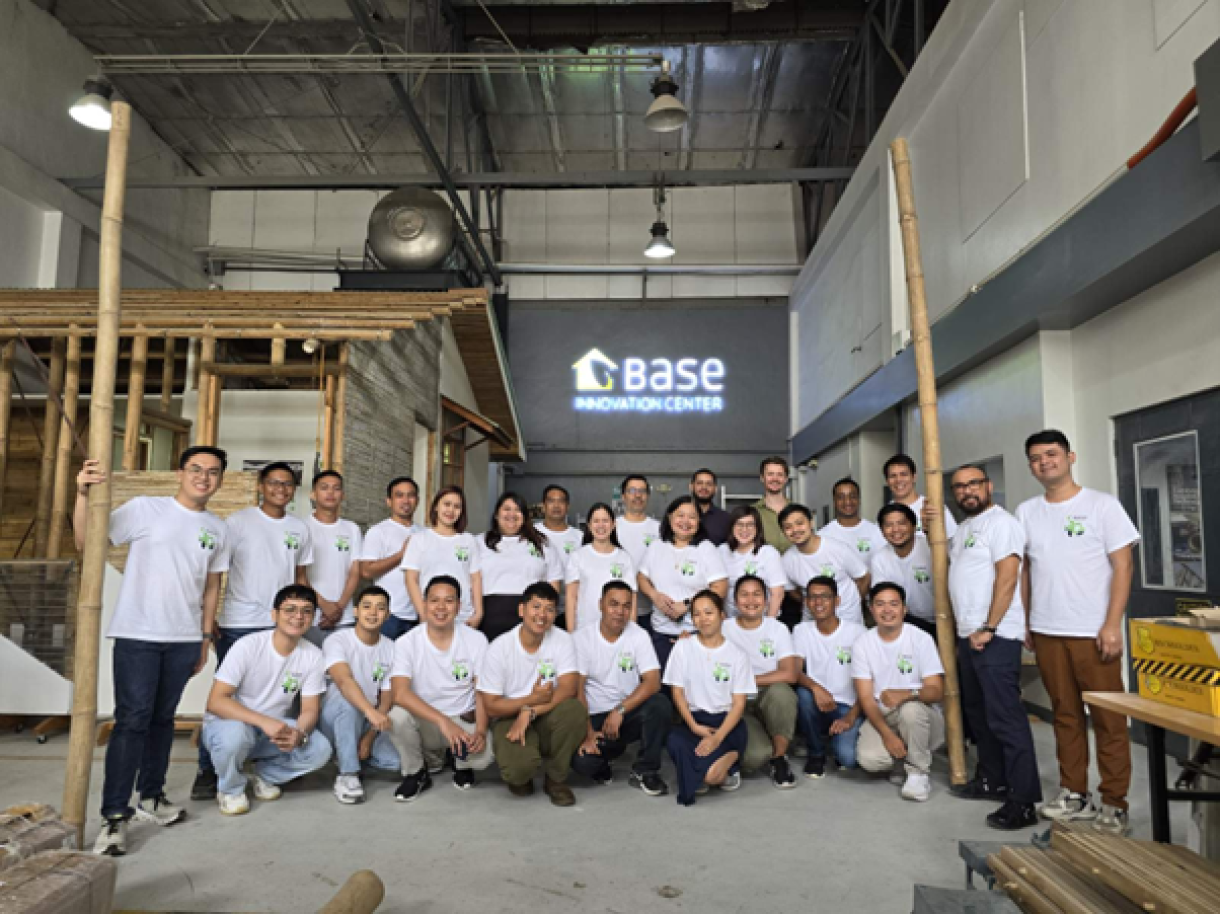Bamboo Drives the International Low-Carbon Construction Sector
New design guide is a significant milestone in realising the benefits of bamboo to widen its adoption.
Comprehensive guidance about the design of permanent bamboo structures has been published by the Institution of Structural Engineers (IStructE).
The detailed design manual draws on the expertise of four international authors from academia and industry. They are all members of the INBAR Bamboo Construction Task Force (BCTF), one of the leading international bodies on the structural uses of bamboo:
- Dr David Trujillo CEng, Assistant Professor in Humanitarian Engineering, School of Engineering at the University of Warwick;
- Kent Harries PEng, Professor of Structural Engineering and Mechanics, University of Pittsburgh;
- Sebastian Kaminski CEng, an IStructE Fellow and a structural engineer from consulting firm Arup;
- and Engr. Luis Felipe Lopez CEng, General Manager of the Base Bahay Foundation Inc. (BASE), which is a guide sponsor with the International Bamboo and Rattan Organization (INBAR).
Manual for the design of bamboo structures to ISO 22156:2021 aims to help structural engineers and other architecture, engineering, and construction (AEC) professionals understand how this prolific bio-based material can be used safely, with the ISO standard and the manual limited to two-storeys because of fire concerns.
Lead author Dr David Trujillio says: “This manual marks a significant milestone for the safe use of bamboo for permanent structures. Most structural design codes are developed in higher-income countries to address their own needs. Only later are they adopted or adapted by lower and middle-income countries – but the starting point is never the needs of those regions.
Professor Kent Harries adds: “There are some 1,600 known species of bamboo. Structurally, it has remarkable mechanical properties. It has also become a very promising bio-based resource, with growing credentials as a sustainable construction material. Nonetheless, this is hugely dependent on designing and building safe and durable structures. Our detailed manual helps to achieve this.”
Sebastian Kaminski explains: “Bamboo has great potential to contribute to a low-carbon construction sector. Bamboo engineering is a very young field compared to mainstream materials and its unique possibilities are increasingly recognised and supported by growing research and innovation. Our manual is structured to support the design engineer along the journey, from sourcing bamboo to detailed design.”
Luis Felipe Lopez highlights: “The construction industry contributes nearly 40% of carbon emissions globally, and bamboo, a regenerative and durable material, is redefining how we build our structures. From being an alternative to a reliable building material, bamboo is now gaining global recognition, and the need for a comprehensive framework is essential to support design engineers and ensure the safe and proper use of bamboo in the built environment, maximising its full potential and environmental advantages.
Kewei Liu, Coordinator of the INBAR Global Bamboo Construction Programme, mentions: “The publication of this guide is of great significance in promoting the application of the current ISO 22156:2021 standard, which has been the most widely accepted international bamboo standard since the 2000s. The authors have made a remarkable contribution to the global use of bamboo construction.”
Bamboo is native to all continents apart from Antarctica and Europe, although numerous species successfully thrive across Europe. Its lifecycle makes it an attractive resource in the context of tackling the global climate emergency, as like trees it fixes carbon in its leaves, stem, roots and surrounding soil. Bamboo’s harvest does not disturb the stored carbon in the soil.
Alongside the four leading authors, the manual was also reviewed by eleven expert reviewers. It has ten chapters covering a wide range of topics including the bamboo supply chain; bamboo project management; grading and mechanical characteristics of bamboo; analysis of bamboo structures; seismic and wind hazard design using bamboo; element and connection design; durability; bamboo structural shear walls; and worked examples of bamboo’s structural use in real-life examples.
Dr David Trujillo concludes: “The guide is published in the wake of the tragic Hong Kong tower block fires. We share condolences for all those impacted, and await the outcome of investigations as we cannot comment on individual cases. However general risk management principles advocate a risk assessment and consideration of use of flame-retardant materials on high rise and closely spaced buildings, along with fire detection and suppression.
“Importantly, and given the wide use of bamboo, this guide sets out provisions for its safe use, including for fire, covering permanent buildings and not scaffolding. Our aim is for this to be a must-use resource for the structural engineer already working with bamboo or considering its use. We also hope it will be a trusted resource for colleagues across the built environment globally, whether in industry or academia.”
